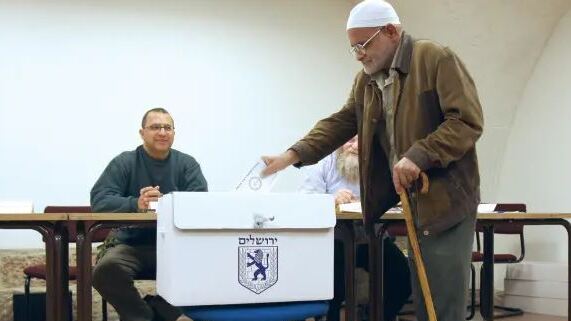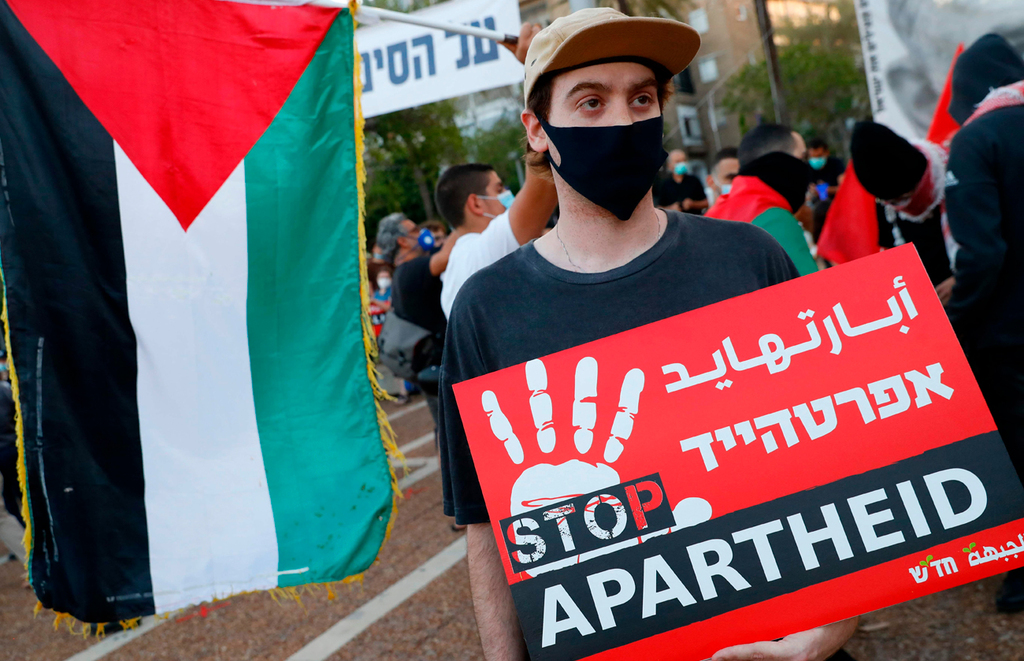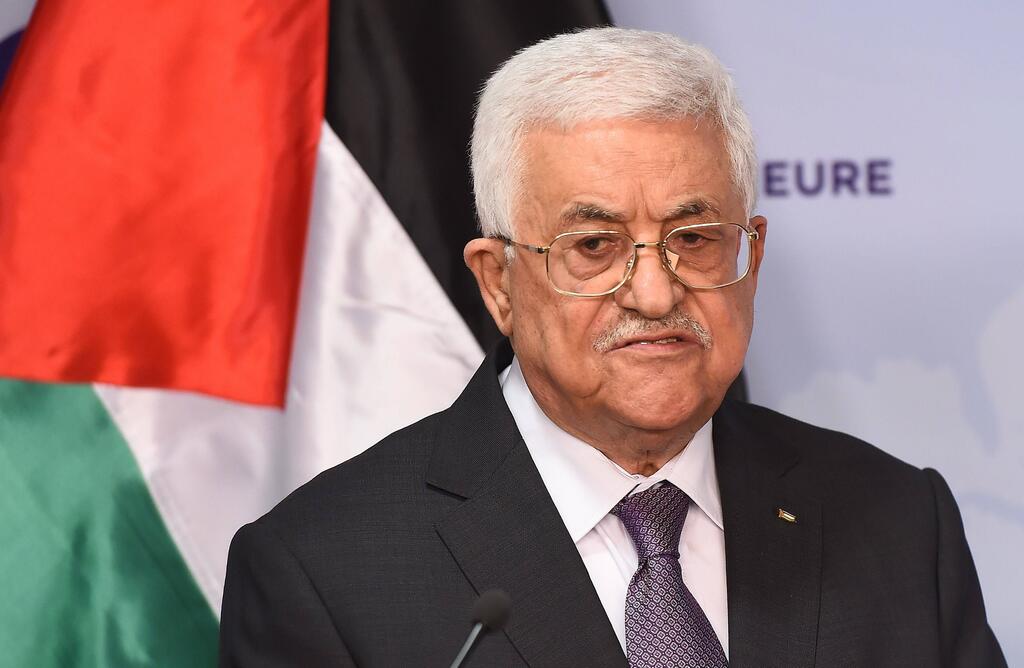While there is a fog around the timing of Israel’s next general election, the date of Jerusalem’s next municipal elections is clear: October 31, 2023.
And unlike in the past, these city elections may turn out to have a surprisingly dramatic impact on Israel's future.
4 View gallery


An Arab resident of Jerusalem votes in the city's last municipal elections
(Photo: AFP)
Trends gaining momentum both in Israel and among the Palestinians may ripen the willingness of Jerusalem Arabs to break free from the past and exercise their legal right to participate in the mayoral and city council elections.
This scenario will offer Jerusalem's 350,000 Arab residents, for the first time since the city’s unification in 1967, a massive political voice.
According to the current numbers, the possibility of electing an Arab mayor in Israel’s capital is not beyond reason (especially if the Jewish camp is split).
Even if this scenario does not materialize, the city council will vividly reflect Jerusalem’s binational reality.
Arab council members may join the municipal coalition. In any case, they will impact the management and character of the city.
The morning after these elections, Israel will awaken to a new era: the binational reality lying dormant between the river and the sea, however repressed in the Israeli consciousness, will erupt in Jerusalem in full steam.
This scenario is driven by intertwining trends that fuel one another. Israeli Arabs increasingly seek to integrate into Israeli society and influence its path forward.
There is a growing pragmatism – the recognition that political engagement is the most effective way to realize their best interests.
The Arab public judges their leaders according to their success in advancing the issues of the Arab street rather than the decibel level of their nationalist rhetoric.
The success of the Ra’am party is proof of that.
4 View gallery


Ra'am leader Mansour Abbas celebrates his party's success in the March 23 elections
(Photo: Avihu Shapira)
In the campaign leading up to last week’s election, Ra'am leader Mansour Abbas repeatedly asserted that his main concern was to address problems of the Arab society.
Stressing his ambition to "influence not through parliamentary tools alone, but governmental ones as well," he said for that sake he was open to negotiating with any party.
The effect of this paradigm-challenging phenomenon will not stop short of the Green Line.
The Palestinian residents of the occupied territories look at their Arab brothers, citizens of Israel, and see a new chapter in how to gain ground with Israel.
And this time, by utilizing the tools of political participation, without bloodshed and without going up against an opponent that enjoys absolute military advantage.
A survey conducted in early 2018 at the initiative of the Hebrew University found that almost 60 percent of East Jerusalem residents were in favor of participating in municipal elections (compared to 13 percent who opposed it).
So far, this aspiration has been suppressed by the Palestinian leadership, which sees it as providing legitimacy to the Israeli occupation.
Hence, this national logic will likely implode as the option of dividing the land fades and Palestinian public support of a one-state solution rises.
The aging Palestinian leadership finds it difficult to part with the dream of an independent Palestinian state, but the political days of this leadership are short. Among the younger generation, other winds are blowing.
As Israel's grip on the territories tightens, and the Knesset majority that opposes dividing the land strengthens, the removing of settlers from their homes becomes impracticable. As a result, these young Palestinians regard the vision of an independent state as a pipedream detached from reality.
When Palestinian President Mahmoud Abbas seeks to breathe life into the two-state formula, he usually paints the alternative he will have to turn to when left with no other choice.
The warning he issued in one of his speeches at the UN General Assembly is emblematic – he asked how he should respond when his people argue: "If the two-state solution has become impossible because of Israel's policies, why don't we pursue a one-state solution where all citizens are fairly treated and have equal rights and duties?"
Abbas' warnings are generally perceived as empty threats. Indeed, in my last meeting with Saeb Erekat shortly before he fell to the coronavirus, he addressed the issue candidly:
"The generation of Abu Mazen [Abbas] and myself is incapable of abandoning the dream of an independent state to which we have been devoted our entire lives. But the younger generation is different from us. Many of them see us as delusional for clinging to a dream that has no chance of manifesting. In their eyes, it is better to have a one-state solution in which they will enjoy equal democratic rights."
Indeed, the ongoing surveys conducted by Dr. Khalil Shikaki (including the last one recently conducted) show that a third or more of Palestinians express support for the one-state formula.
Among young people, support is particularly high and solid. Proponents of a single state believe they will gain equal rights because, over time, even Israel's most loyal friends will not countenance an apartheid state.
4 View gallery


Israelis protest in Tel Aviv over the defunct plan to annex parts of the West Bank, June 2020
(Photo: AFP)
The abandonment of the two-state vision will soften the barriers that have hindered the participation of Jerusalem Arabs in municipal elections.
Palestinian success in a Jerusalem election would, in turn, strengthen support of the one-state solution, and all of these processes will be boosted by the intensifying trend of integration among Israeli Arabs.
If and when the Palestinian residents in the territories obtain political rights and participate in the Knesset elections, Israel's Jewish identity will come to an end.
An Arab majority is not required for this Jewish nightmare to come true. It would be enough if 40 percent of the citizens of Israel were non-Jews for the Jewish symbols that currently distinguish the State of Israel – the national anthem, the flag, the holidays – to lose their meaning.
Israel would become a binational state, and like some of its neighbors, saturated with violence and sharp ethnic and religious conflicts.
Ironically, of all places, the process that will lead to the loss of Israel's Jewish character will gain critical mass in Jerusalem – the very core of Jewish identity.
Avi Gil is a senior fellow at The Jewish People Policy Institute (JPPI), author of “Shimon Peres: An Insider’s Account of the Man and the Struggle for a New Middle East” and a former director-general of Israel’s Ministry of Foreign Affairs.


